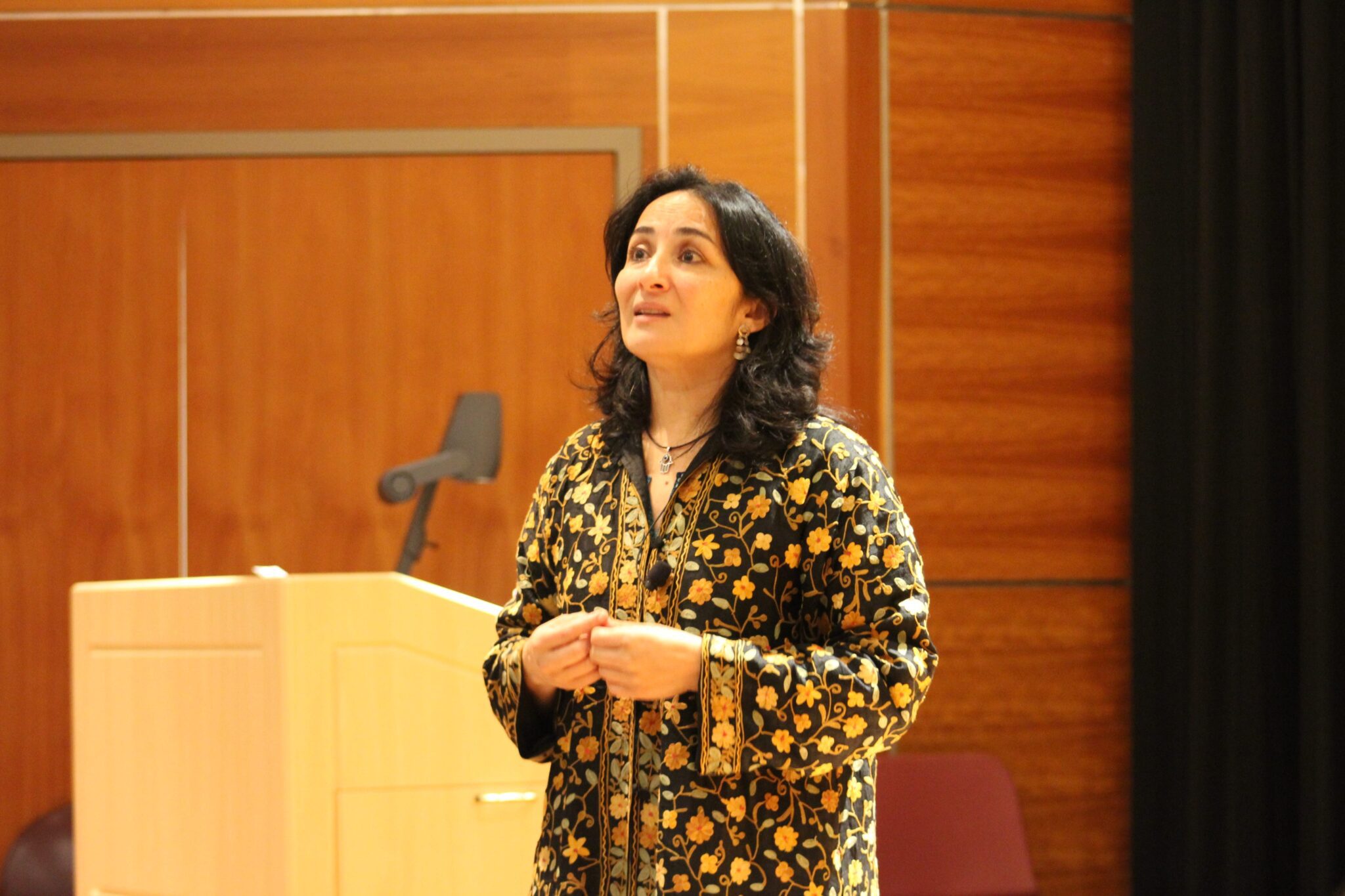Feminist Islamic journalist explores the paradox of women in Islam
Asra Nomani pinpointed radical Islam and lack of women’s rights as an urgent issue on Tuesday, March 7. She also discussed her vote for Donald Trump and various translations of the Quran.

KNOXVILLE, Tenn. -- Journalist Asra Nomani pinpoints Radical Islam and repression of women as pressing issues in Muslim communities.
On the eve of National Women’s Day, Asra Nomani asserted that the Muslim community should challenge the oppressive customs women face due to distorted tenants of the Muslim faith.
The Islamic Feminist Movement leader made a case that the Islamic Feminist Movement is not about being a “bad girl” of Islam, but reclaiming the rights granted at Islam’s birth in the seventh century that women are now deprived of. Muslim women in the 21st century face constrained rights and absence of political leadership.
She believes the Quran, the Muslim holy book, has been distorted by years of translations to take rights away from women. According to Nomani, the life of Haajar, a revered woman in the Islamic faith, is a perfect example.
“There is something that I couldn’t do that Haajar had done. I couldn’t run,” Nomani said. “I had been a runner, wearing tennis shoes and sneakers since I was ten years old. But the little prayer book that I held that told me the rules had said that a woman cannot run. She can walk briskly, but she cannot run because to run would be too tantalizing for the man who may see.”
Nomani, an avid runner throughout her life, was prohibited by law to run. She went on to discuss even more similarity to Haajar, wife of Islamic Prophet Abraham and mother of Ishmael, when she became pregnant.
“I discovered that I was pregnant from this boyfriend I had. We had never gotten married and he had disappeared…,” Nomani said. “What I faced was a new reality in which the government of Pakistan had put in place laws that said that because I didn’t have a ring on my finger, I was a criminal.”
Nomani challenged the orthodoxy inside of her community regarding the pregnancy as a scarlet letter and decided to have the child. He is 14 now.
Nomani called it a paradox of reality in the 21st century that women are criminalized for “moral crimes.” As a Muslim woman who does not cover her hair, she recalled time traveling to Mecca, Saudi Arabia where she was unable to enter the public with her hair showing or the absence of a male escort. She was unable to pray in the same location as men and was “relegated to the shadows.”
This, along with the Obama Administration’s continual move to ignore radical Islam, was Nomani’s reason for voting for President Donald Trump. She received backlash from feminists and Muslims alike for her Nov. 2016 article in the Washington Post defending her decision. Likewise, she revived questions from the audience about how she, as a woman and a Muslim, could vote for President Trump.
To these questions, she continually referred to the growing issue of radical Islam and the importance of respecting opinions of those who differ from you. She recalled voting for Obama for both elections, but standing in protest to his visit of a mosque with divided prayer for men and women.
Drost Kokoye, a Muslim student in the audience, sung praises of Nomani’s lecture but also issued a critique claiming Nomani’s framing of the topic was giving people “ammo” to smear Muslims in a time where the Islamic community already faces backlash.
“…I agreed with all of her grievances of having a side entrances, having no access to leadership, whereas original days of Islam, that was not the case…,” Kokoye said. “But, I think as a Muslim who has had a lot of problems with Islam and the Muslim community, it’s really easy for me to see what are problems with the Muslim community and where the lines and the tenants of Islam actually are. I think she completely blurred that…It’s not doing anybody a justice.”
Nomani shed light on her accusation of the Quran distortions by reading two translations of the same passage in the Quran that seemed to mean very different things about female attire.
https://www.youtube.com/watch?v=mBvCkakC4Zc
Nomani is an advocate for the Muslim Reform Movement, a movement that lays out an “ideological firewall” against Islamism. The declaration calling for peace, human rights and secular government has been posted on mosque doors and circulated among the community garnering mixed reviews.
Megan Landon, Vice President of Programming for the Issues Committee, wanted to invite Nomani because her topic is so relevant in today’s culture.
“We thought she could give us some good insight to things that are going on right now — not to say Muslim women can’t be feminists — but there is a lot of debate around what it means to be a Muslim woman and a feminist. We thought she would provide a good perspective and help start a conversation,” Landon said.
Nomani closed by urging women to advocate for equal prayer space, equal rights in Islam and to become full and equal participants in Islamic society.
“Tap the feminine paradox in your life about what you can be so you can run in full stride,” Naomi said.
Edited by Kaitlin Flippo
Featured Image by McKenzie Manning

